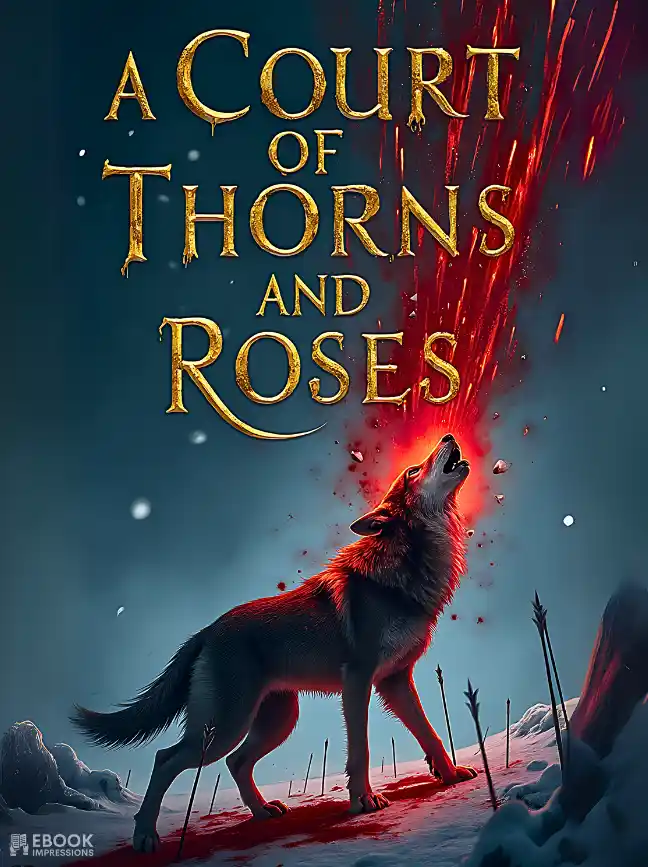Chapter no 1
In the desolate, snow-laden forest, survival was a relentless challenge. A young hunter ventured deeper into the thicket than ever before, driven by hunger and desperation. Perched on a tree branch, she scanned her surroundings for prey, only to be thwarted by the storm that erased all signs of movement. Winter had drained the forest of life, leaving her to track fleeting chances of food. The weight of responsibility hung heavy on her shoulders as she struggled to provide for her family amidst dwindling resources and ever-growing risks.
The hunter’s circumstances were grim, with no recent signs of deer or other game. The forest’s harsh conditions mirrored her internal despair as she reflected on her family’s plight. Memories of simpler, more colorful times surfaced, juxtaposed against her current existence, where survival consumed every waking moment. With no choice but to persevere, she scanned the frozen woods, clinging to hope while battling numbness in her fingers and the gnawing ache of hunger.
Her patience was rewarded when she spotted a doe in a clearing, but a massive wolf, larger than any she had ever seen, emerged as a rival for the kill. The wolf’s stealth and unnatural size raised questions about its true nature—mortal or faerie. Despite her fear, the hunter decided to act. Relying on an ash arrow—a rare weapon capable of killing faeries—she targeted the wolf to protect herself, her village, and her family’s chance at survival.
The encounter was intense and fraught with danger, but her aim proved true. The ash arrow pierced the wolf, and though it exhibited a disturbing intelligence, her second shot ensured its demise. The hunter’s relief was tempered by the realization that the wolf was not a faerie, merely an unusually large animal. After skinning the wolf and securing its pelt, she turned her attention to the doe, knowing it would sustain her family for a time. Despite the wolf’s strange death, she felt no remorse; survival left no room for sentimentality.
As she began her arduous journey home with the deer on her shoulders, the forest’s haunting beauty surrounded her. The bloodied snow and the wolf’s lifeless body were stark reminders of the brutal reality of her life. Yet, she carried on, determined to ensure her family’s survival through another unforgiving winter. The harshness of the forest and the weight of her burden were inescapable, but so was her resolve to endure, no matter the cost.
Chapter no 2
After a grueling journey, Feyre finally emerged from the forest with a deer carcass slung over her shoulders, her body worn and frozen from the effort. As she approached her dilapidated cottage, the sight of its faint light gave her a brief sense of comfort despite the biting cold and her sisters’ likely indifference. Inside, the family dynamics were just as strained as always—her sisters, Elain and Nesta, focused on petty desires rather than helping with their survival. Her father, crippled and defeated by past hardships, offered little more than faint acknowledgment of her sacrifice. Feyre was left to shoulder not only the deer but the burden of keeping the family alive.
The tension among the family members was palpable. Nesta’s biting remarks and Elain’s obliviousness highlighted their disconnection from the harsh reality Feyre endured daily. Feyre’s contribution went largely unappreciated, and her sisters quickly began arguing over who should benefit from the spoils of her hunt. Even in the face of dire poverty, Nesta and Elain maintained their personal aspirations and illusions, while Feyre, weary and burdened, quietly took on the responsibilities they refused to acknowledge.
Feyre’s father, though occasionally grateful, remained a shadow of the man he once was, broken by both physical and emotional scars. His inability to contribute meaningfully compounded Feyre’s frustration, as did his occasional indulgence of Nesta’s fantasies. Feyre’s resentment simmered, especially toward Nesta, who not only failed to contribute but openly disdained the rough, survival-focused life Feyre had mastered. Yet, despite her exhaustion and the bitterness she felt, Feyre continued to fulfill her mother’s dying wish to look after her family.
Dinner brought temporary respite, but it didn’t last. A heated argument erupted over Nesta’s desire to marry a woodcutter’s son, Tomas Mandray, whom Feyre deemed unsuitable and opportunistic. Nesta, in turn, hurled insults at Feyre, accusing her of being uncivilized and unworthy of recognition. Feyre countered with the harsh truth of their situation: they were poor, with no dowry or resources, and love alone wouldn’t change that reality. Their clash underlined the stark differences in their priorities—Feyre’s focus on survival versus Nesta’s longing for a life beyond their current misery.
In a rare moment of clarity, Feyre’s father suggested that Nesta’s hope, no matter how misguided, was vital to keep their spirits alive. But Feyre, hardened by years of toil and disillusionment, could only see the futility of such dreams in their harsh world. Left alone with her thoughts, Feyre stared at her fading paintings, a reminder of the fleeting beauty she once cherished but now saw as symbolic of her fading existence. Her father’s plea for hope fell on deaf ears; in Feyre’s world, survival was the only truth, and dreams were luxuries they could no longer afford.



